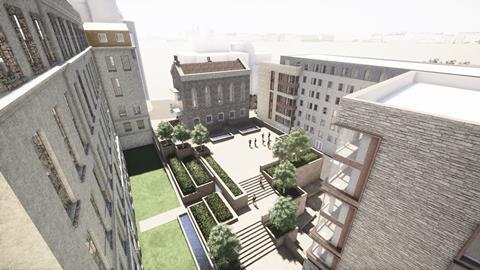Unite eyes more schemes in London as development pipeline falls a quarter
Student development giant Unite saw the average occupancy of its rooms fall to 88% in 2020 following the onset of the coronavirus pandemic, the firm said today.
The figure compares to average occupancy of 98% in 2019 and came as the student housing landlord reported a pre-tax loss for the year of £120m, largely due to a £178m write-down in the value of its properties in the wake of the covid crisis.

But the firm said its EPRA earnings – which measures the underlying operational profit of the business – fell by just 12% to £97.3m.
This figure reflected both a rise in rental income due to the £1.4bn acquisition of Liberty Living in 2019, which contributed £49m to the rent roll, offset by the drop in income as Unite allowed students to waive their contracted rents last year when Universities were shut in the first lockdown.
The figures also reflect a temporary drop in Unite’s development activity in the wake of the pandemic, with the firm having deferred several schemes previously planned to open for the 2021/22 academic year, including its £59m Bristol BRI scheme, overall saving it £72m in the year.
In addition, two schemes, one in Manchester and another in Wembley and which had been due to open for the 2020/21 academic year, were delayed until the start of 2021, with students offered alternative accommodation.
It said the number of homes under development at its December year-end dropped to 187 from 412 at the end of 2019, with the size of the overall development pipeline falling by a quarter, from 5,191 to 3,968.
The firm said it was continuing to identify new development opportunities, with particular focus on London, given a “softening in land values and lower viability for some competing uses” in the capital. The firm said it will add to its pipeline during 2021 and was targeting a development rate of around 1,500-2,000 new beds per annum.



























No comments yet